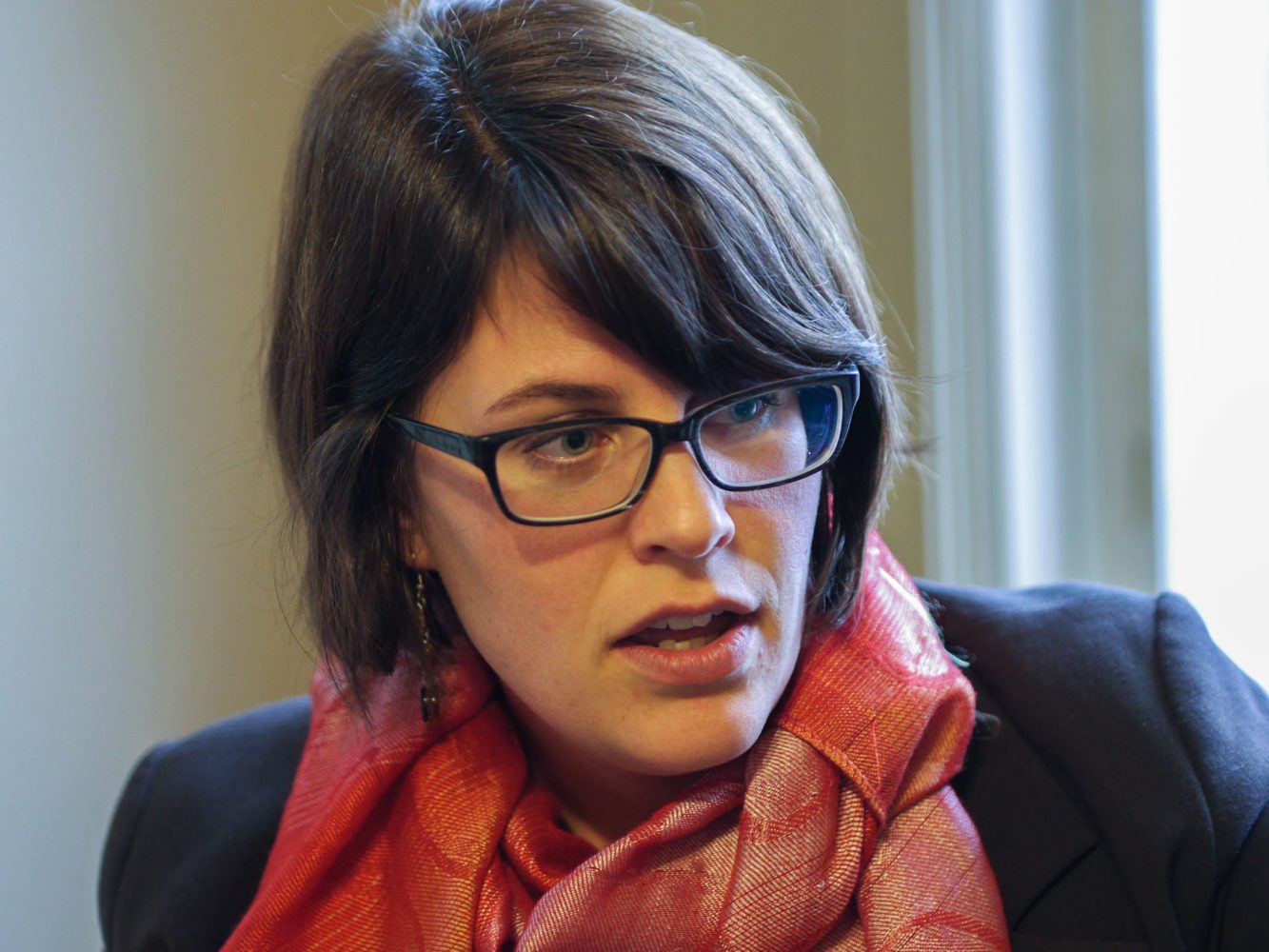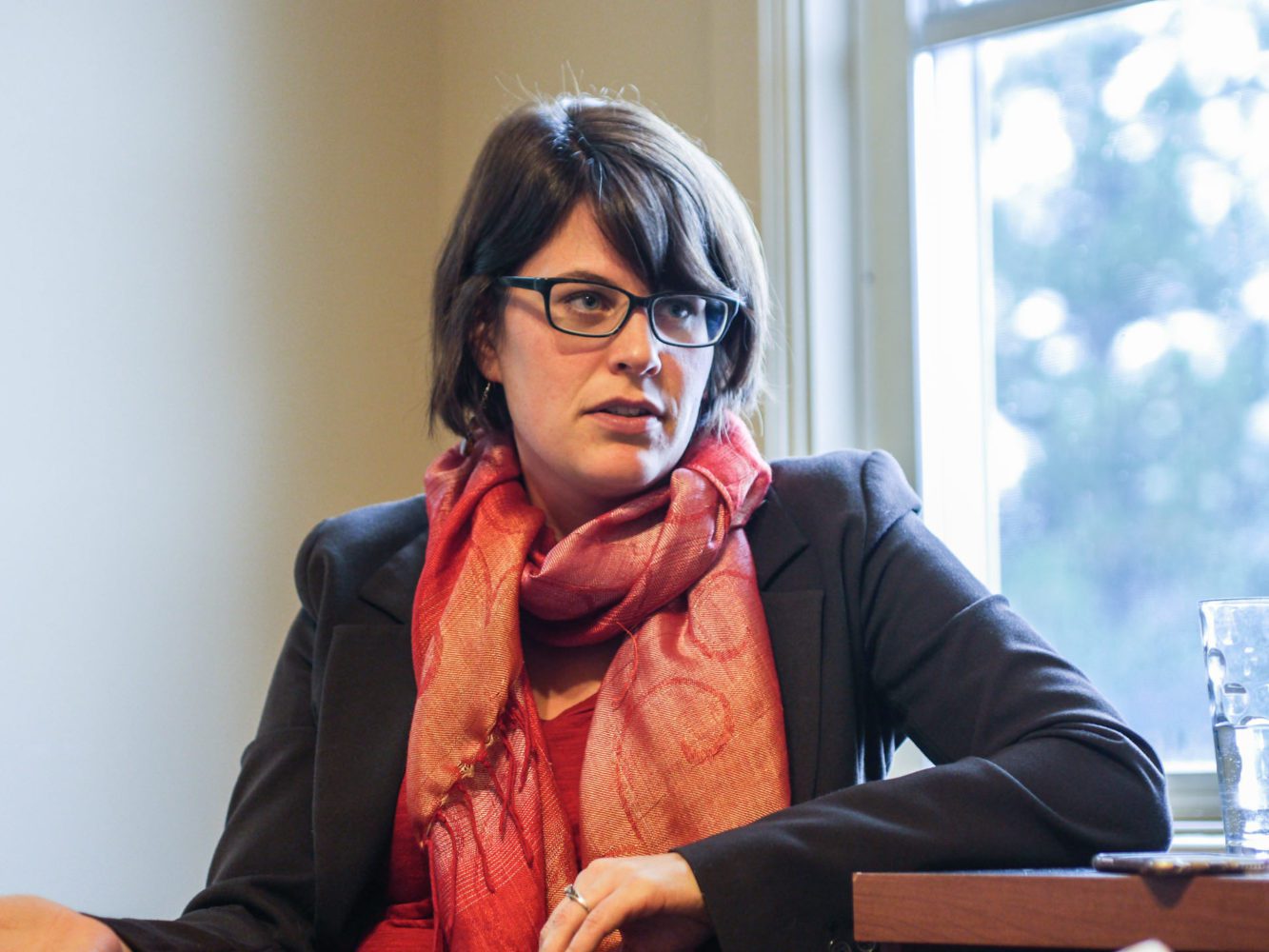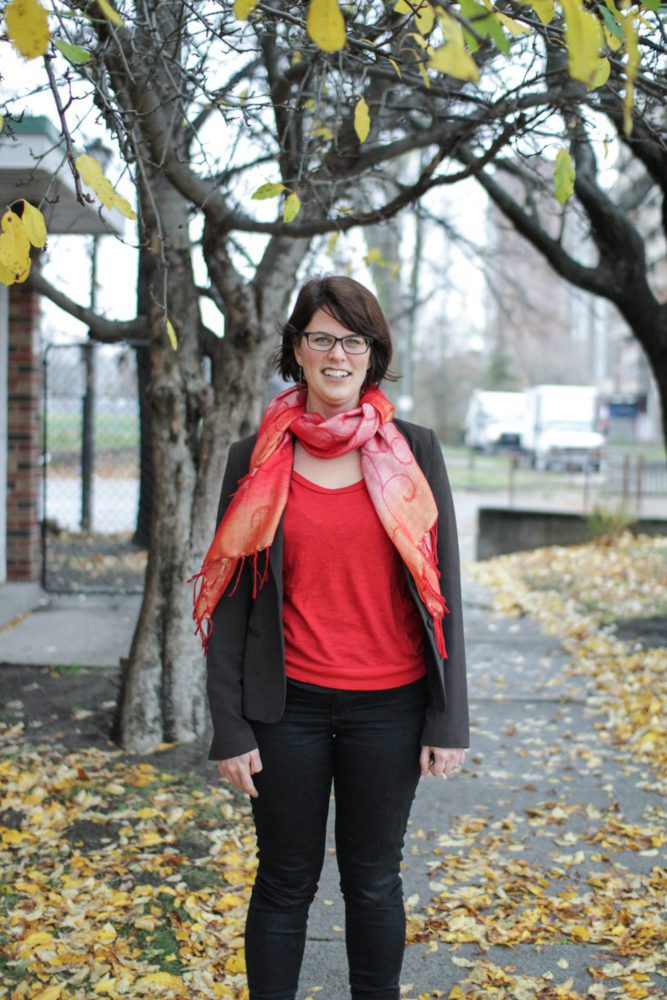Kim, an inner city health nurse, talks about what her patients have taught her about trauma, resiliency and the power of compassion
“I’ve been a nurse since 2006. I did psychiatric nursing towards the end of nursing school and got very passionate about it. I now work in an inner city health program caring for people who are homeless.”
“Dealing with mental health is a huge part of helping the homeless population. There’s still so much stigma associated with mental health.”
I sit with people and tell them, ‘you’ve had really horrible childhood experiences. That actually changes your brain and makes you more susceptible to mental health conditions and addictions.’
“It’s such a relief for them to just have that acknowledged. Little things can make a big difference. I guess that’s why I keep doing this work.”

“Can you give some examples of the stigma around mental health?”
“People often don’t get good health care. Our clients go to the emergency department and can get very easily dismissed. Especially people using drugs and alcohol. If someone shows up suicidal and drunk 10 times, and each time they get discharged as just drunk, there’s a problem. And there’s no follow up. It’s not like they say on the discharge summary, ‘Follow up with inner city health team.’”
“I have friends working in the health care system who say, ‘Kim, I couldn’t do what you do! I avoid mental health at all costs.’ I have heard that more than once. We had a woman who was bleeding from her vagina and her physical symptoms got totally overlooked. She ended up actually having ovarian cancer and died from her cancer. She had accessed the health care system many times and things were not addressed because she was high. For us, this is a big source of frustration.”

“I’ve had many clients who have really touched me. One of my favourites – who is dead now – had schizophrenia and had been in the shelters for a long time. He had this delusion that he was the King of England and he also thought that he was a physician. He wanted to go on rounds with one of our physicians. He was very eccentric – he had his scooter all dressed up and wore lots of jewelry and had decorations on his hat. He had a crazy laugh that was awesome.”
“But it was a real challenge to get him to take care of himself. He had heart failure and diabetes and schizophrenia. We would try and get him to take a pill for his heart failure and he just would not do it because the medication would make his mouth dry. The only way I could get him to take it was to buy him mints, and he would get a mint every time he took his pill.”
“A funny story about him: He was a chronic smoker – that’s what killed him in the end. I used to take him to see a psychiatrist and his psychiatrist always bothered him about his smoking, which he hated. I would drive him to these appointments and the psychiatrist sat down with him and was bothering him about his smoking again. He just looked at the psychiatrist and said, ‘You think I’ve got a problem? You should see Kim. Her car is littered with cigarette butts!’ (I don’t smoke). I just lost all professional cool, and was like, ‘What the hell are you talking about?’ And he laughed his crazy old man laugh.”
“I treated him for his schizophrenia and his delusions went away. But then he got depressed because he was no longer the King of England. The thing I always remember about him is that for all the crap he had been through, he was very kind and considerate. He was a very caring man. That’s one thing that strikes me about a lot of our clients – for all they’ve been through and for all they are still going through, they notice things about you.”
Sometimes clients will see that you are not having a good day, and your co-workers haven’t picked up on that.
“I still miss seeing him when I go into the shelter.”

“For people with schizophrenia, a big part of their treatment is medication. We start them on anti-psychotic medications and some people stop hearing voices, start being less distressed and are able to do their activities of daily living.
But helping people recover is also about helping with daily activities. People with really severe schizophrenia can get to the point where they need to re-learn how to do things like how to dress appropriately for the weather – you see people outside with hardly any clothes on in the winter. Our staff do a lot of basic things like helping people get showered and eating regularly. We have really amazing personal support workers who are in the shelters 24/7. We nurses are there Monday to Friday during the day; they do the really hard work.”
“Some of our clients are so paranoid that it’s taken me five months to get into their rooms and make them feel safe enough to talk with me. Some of them are so socially isolated that making them feel like they have a community and belong somewhere is a really important part of the job. Sometimes that means just regularly seeing them and saying hello, for days and weeks on end.”

“I had a guy who is very delusional. He thought he was an undercover cop working for the police to help get a pedophile ring. There was another guy on the unit who was a tough guy. Those guys clashed and almost got into fistfights. They both had these ideas about things that aren’t really grounded in reality, and they pushed each other’s buttons.”
The shelter is not a good place for mental health, right? People live in very close proximity to one another.
“You have a bunch of men in one room. Think about the snoring at night! Just the lack of sleep gets people’s nerves on edge.”

“If there was one thing I could do to prevent mental illness, it would be to prevent childhood trauma. Absolutely, hands down. I wasn’t a mom when I started this job. It definitely hits you harder and differently when you see your kid and think about how trauma could affect a child like her for the rest of her life.”
“We have a lot of First Nations and Inuit clients and a lot of residential school survivors. Some of their stories are horrific – their understanding of what is normal is so completely skewed.”
It’s so disturbing, and you think, ‘Oh my God, this is Canada!’
“When I hear people’s stories, I think that it cycles. People who are abused sometimes become abusers themselves as adults. We need to figure out how to prevent that cycle from recurring. We need to help people who have been abused feel loved, find a place of belonging, have goals to aim for. People get abused as kids and then we keep making them feel worthless and not part of society. If we don’t give them supports, if we don’t give them education – what hope do people have? Hope is big. People need hope, and people with mental illness really need hope.”


The comments section is closed.